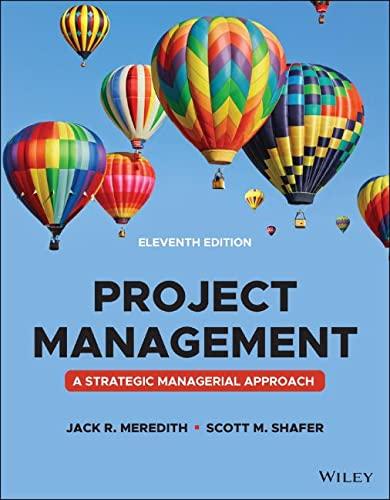Question
Reply to the post by a peer below in a well-developed paragraph and provide scholarly support for alternative communication strategies. Name at least two types
Reply to the post by a peer below in a well-developed paragraph and provide scholarly support for alternative communication strategies. Name at least two types of communication strategies the peer did not include in their post. Provide examples of these communication strategies.
N/B: Scholarly references from the year 2020 - 2024 should be used and put in text citations into the paragraphs.
Remember you are simply responding to the peer post, so no title, no numbering, no bullet points. Put your answer in two paragraphs with it's corresponding intext citations and scholarly references from the year 2020 - 2024
Read the instructions again and the peer response then use your own research reference not the peers reference
Here is the Post by a Peer you should reply to:
Groups within a larger organization play an important role in the organization's ability to achieve its goals. According to Huber (2018), the formation of groups in a workplace contributes many advantages, such as giving its members a greater sense of connection to the organization at large as well as contributing a greater knowledge base to its members and to those who are impacted by the group. However, in order for a group to be effective, skilled leaders must be at the helm of the group. The purpose of this post is to share about a flourishing group in the unit in which I work and explain the attributes of the leadership that contribute to this group's success.
In my unit, I am a part of the education committee, which is a group of nurses who are dedicated to staying up to date on current literature regarding nursing practice and disseminating best practice updates to our coworkers. According to Huber (2018), a committee is a unique type of group because those a part of it are responsible for the planning, implementing and evaluation of the goals of the committee. It is a standing, regular group of individuals all committed to the same goal and are involved in all parts of implementing the goal. A group of nurses working within the University of Virginia healthcare system are an excellent example of the benefits committee work can bring to an organization (Blackstone, Wade, & Horn, 2019). A leader within the hospital developed a night shift committee designed to provide extra support to night shift nurses, since oftentimes night shift nurses miss out on the support from leadership to which day shift nurses have access. In an effort to counteract the underappreciation night shift nurses often feel, the night shift committee made efforts to improve retention, education, and leadership.
Likewise, the education committee on the unit in which I work aims to better our unit by improving access to educational resources on our unit. According to polls disseminated by the education committee, our nurses struggle to make arterial line set ups, especially in a fast pace scenario. To combat this, one of our co-chairs created a portable education cart with arterial line supplies with which staff members can practice. When a nurse has downtime, they can use these materials to improve their skills. In this way, the formation of an education committee had a tangible positive impact on the job performance of the nurses in our unit.
The education committee is also largely successful because of the organization of our monthly meetings. Each member is accountable for their participation and two or more unexcused absences results in removal from the committee. According to Huber (2018), this accountability within a group is vital for success. Furthermore, our leaders are adept at structuring their meetings so that the purpose of the meeting is clear at the onset. Gandy (2021) states that agendas are helpful in keeping the meeting focused and ensuring the aims of the meeting are achieved. It is also recommended practice to disseminate these agendas prior to the start of the meeting, which our co-chairs do not currently do. In order to better optimize meeting time, I would recommend that the education committee co-chairs implement this strategy.
Step by Step Solution
There are 3 Steps involved in it
Step: 1

Get Instant Access to Expert-Tailored Solutions
See step-by-step solutions with expert insights and AI powered tools for academic success
Step: 2

Step: 3

Ace Your Homework with AI
Get the answers you need in no time with our AI-driven, step-by-step assistance
Get Started


